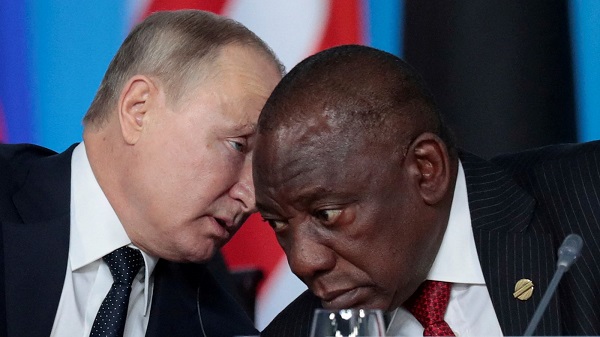South Africa has commenced plans to amend its law to empower them to decide whether or not to arrest him having been declared wanted by the International Criminal Court (ICC) ahead of Vladimir Putin’s August visit.
The Russia’s leader is due to attend the Brics group of nations summit in South Africa, and the government is being pressured to arrest him due to an ICC arrest warrant due to their membership of the international organisation’s obligations.
“In June we’ll be submitting the law in parliament,” Obed Bapela, a deputy minister in the South African presidency said.
Through the law South Africa “will give itself exemptions of who to arrest and who not to arrest”, Mr Bapela said.
Mr Putin has been accused by the ICC of crimes against humanity committed in the ongoing war in Ukraine. South Africa has refused to condemn Russia’s invasion, insisting it wants to remain neutral.
Mr Bapela said that South Africa was also writing to the ICC about a waiver. This refers to article 98 of the Rome Statue, the treaty which established the court in 2002.
While article 27 says no-one is immune from prosecution by the ICC, article 98 appears to suggest that the ICC could not force South Africa to arrest the Russian leader unless Russia agreed to waive Mr Putin’s immunity from prosecution.
The deputy minister also lashed out at the ICC for its “double standards”, saying “we never thought that the ICC that we have today will be what it is. They never indicted Tony Blair, they never indicted George W Bush for their killings during Iraq phantom war,” he said, referring to former UK and US leaders and their invasion of Iraq in 2003.
Mr Bapela also pointed to past examples of exemptions of international justice, like the UK’s decision not to extradite former Chilean dictator, General Augusto Pinochet in 1998.
Meanwhile, South Africa’s main opposition party, the Democratic Alliance (DA), has launched a court application in the Gauteng High Court to compel the authorities to arrest Mr Putin should he arrive in August.

